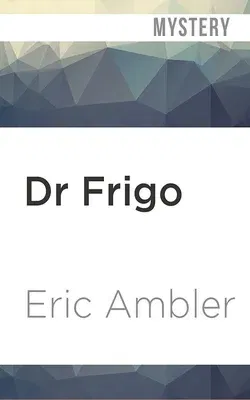A coup d'etat in a Caribbean state causes a political storm in the
region and even the seemingly impassive and impersonal Doctor Castillo,
nicknamed Doctor Frigo, cannot escape the consequences. As things heat
up, Frigo finds that both his profession and life are horribly at risk.
Eric Ambler was born into a family of entertainers and in his early
years helped out as a puppeteer. However, he initially chose engineering
as a full time career, although this quickly gave way to writing. In
World War II he entered the army and looked likely to fight in the line,
but was soon after commissioned and ended the war as assistant director
of the army film unit and a lieutenant-colonel. This experience
translated into civilian life and Ambler had a very successful career as
a screenwriter, receiving an Academy Award for his work on The Cruel
Sea, by Nicolas Monsarrat, in 1953.
Many of his own works have been filmed, the most famous probably being
Light of Day, filmed as Topkapi under which title it is now
published. He established a reputation as a thriller writer of
extraordinary depth and originality and received many other accolades
during his lifetime, including two Edgar Awards from The Mystery Writers
of America (best novel for Topkapi and best biographical work for
Here Lies Eric Ambler), and two Gold Dagger Awards from the Crime
Writer's Association (Passage of Arms and The Levanter). Often
credited as being the inventor of the modern political thriller, John Le
Carre once described Ambler as "the source on which we all draw." A
recurring theme in his works is the success of the well-meaning yet
somewhat bungling amateur who triumphs in the face of both adversity and
hardened professionals. Ambler wrote under his own name and also during
the 1950's a series of novels as Eliot Reed, with Charles Rhodda. These
are now published under the Ambler umbrella.

